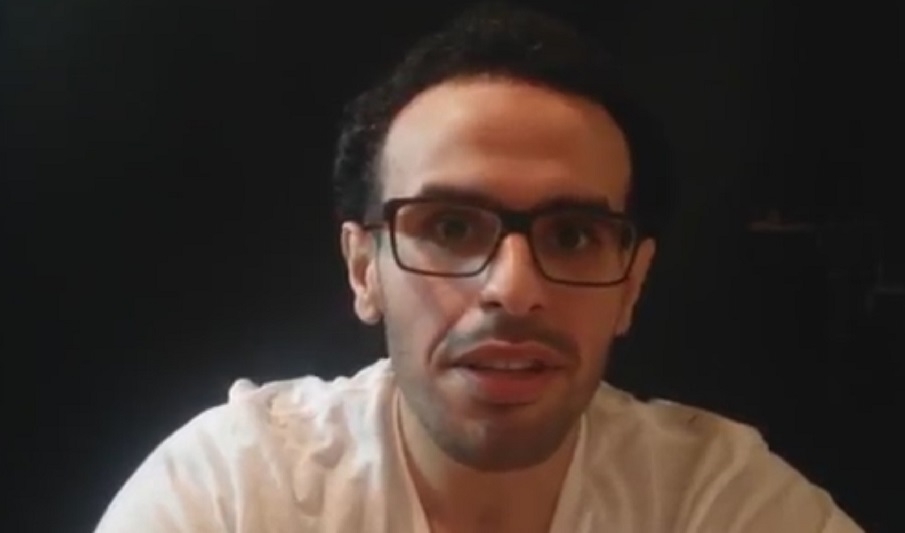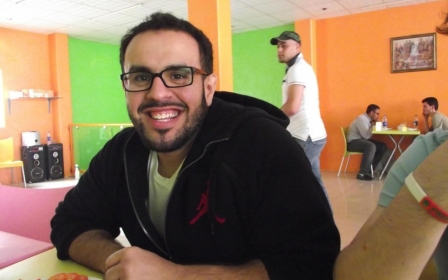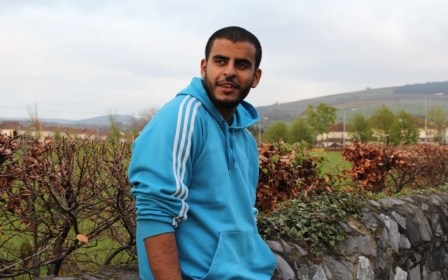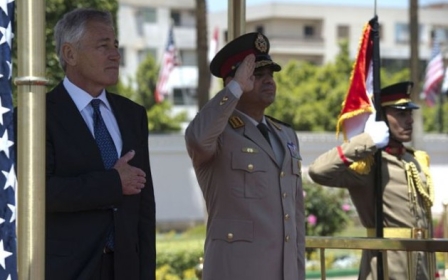American hunger striker in Egypt makes video appeal to Obama

A new video showing 26-year-old American hunger striker Mohamed Soltan, held in an Egyptian prison for almost 200 days, was aired on Tuesday evening.
The video released by CNN’s Christiane Amanpour shows Soltan speaking to camera and appealing directly to US President Obama and the international community.
A copy of the video was also obtained by the Middle East Eye and shows the young Egyptian-American pleading with Obama to do more to secure his freedom.
"If you’re watching this it means I'm either in solitary confinement in a dungeon somewhere with no access to the outside world or I'm in a hospital bed because the hunger strike I started January 26… has gotten the better of me or I’m dead,” Soltan said. “If I'm still alive, then I ask my government, the government of the United States of America, is my life not worth anything to you? Has the life of American citizens become worthless or is it because my name is Mohamed?
“Your government moved mountains and sent a charted plane to evacuate my fellow blond hair, blue eyed Americans who were being detained by the same Egyptian military back in 2012, so why am I any different? Is it because my father is not some rich well-connected congressman or is it because my father is an Islamic scholar, an Islamic Academic? Or is it because, like you sir, I have an Arabic name?" the Ohio State graduate added.
New MEE newsletter: Jerusalem Dispatch
Sign up to get the latest insights and analysis on Israel-Palestine, alongside Turkey Unpacked and other MEE newsletters
The video comes on the second day of Egypt's presidential elections and is likely to put more pressure on the Obama administration in its dealing with the Egyptian authorities.
Soltan was arrested in the wake of the 2012 Rabaa massacre in Egypt in which pro-Morsi supporters were killed and arrested en masse following the overthrow of former President Mohamed Morsi. Soltan was shot in the arm in the days leading up to his arrest and claims to have been denied medical treatment in prison, where he says he was forced to rely on a fellow inmate to operate crudely on his wounds.
Despite being an ally of Egypt, the American authorities have expressed concern recently over developments such as the mass death sentences passed down on hundreds of members and supporters of the Egytptian Brotherhood. State Department spokesperson Jen Psaki called the death sentences "unconscionable."
Her comments echoed similar statements made by Secretary of State John Kerry in March.
"I am deeply, deeply troubled by the sudden and unprecedented decision by an Egyptian court to issue preliminary death sentences for 529 citizens after a quick mass trial. It simply defies logic", Kerry said.
He urged the "appropriate Egyptian authorities to remedy the situation," adding that the decision does not reflect the values and goals to which the interim government has aspired to.
A State Department official told MEE that they "routinely seek consular visits with Mr. Soltan, and arranged for him to be seen by an outside physician to assess his condition. We continue to closely monitor his case, and we are in contact with his family and legal team to inform them about recent developments."
The official said that a consular officer had met with Soltan on May 5 and attended his hearing on May 11.
"We continue to raise this case with Egyptian officials at the highest levels."
In the last few weeks and months there have been growing concerns over the failing state of Soltan’s health as a result of the prolonged hunger strike which has now reached 121 days.
In the video, Soltan explains why he chose to begin his open-ended hunger strike.
I've started my hunger strike “because I was brought up a free man so my decision was to peacefully challenge and resist oppression entirely," Soltan said. "That even if the Egyptian military is able to jail me and my own government insists on abandoning me, I still control my own destiny. I still control my own fate and that to me is what being free and what being an American is all about."
Middle East Eye delivers independent and unrivalled coverage and analysis of the Middle East, North Africa and beyond. To learn more about republishing this content and the associated fees, please fill out this form. More about MEE can be found here.




